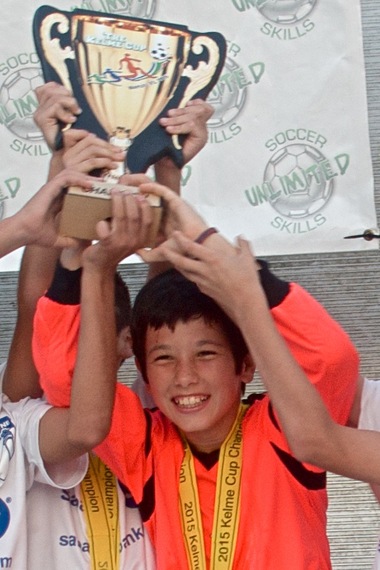(Huff Post, 'Creating Meaning from the Unthinkable,' Dec.6, 2017). Oliver was only 12 years old, a standout in everything he did. His passion was soccer, so his performance as an elite-level goalie for his youth soccer team in Miami was no surprise. A good student in school, he also played the piano and baritone saxophone, was a compelling actor, was kind to his younger brother and his friends, and could make anyone laugh out loud.
Then, on June 18, 2015, Oliver died, only 36 hours after being diagnosed with acute myeloid leukemia, a cancer that is rare in children. Like many parents of kids who die of cancer, his mother Vilma Tarazona and father Simon Strong kept asking, “Why? How could this happen?”

Cancer kills more children than any other disease; it is second only to accidents as a cause of childhood death. Unlike many parents, Vilma and Simon refused to accept being told that “no one knows why.” Could it have been the chemical-laden artificial turf on which he played soccer goalie? Something toxic in the air or water? Household chemicals such as cleaning supplies or herbicides? The more they looked, the less they learned.
But they did learn that cancer can be triggered by the environment. According to the World Health Organization, cancer develops “when an environmental agent such as a chemical, an infection or radiation successfully damages DNA and this damage fails to be repaired.”
> > The WHO projects a 70 percent increase in new cancer cases over the next two decades.
Professionally both Vilma and Simon are into fact-finding. Vilma is a senior reporter for Univision’s national news network in Miami, and Simon is a bi-lingual expert in risk assessment, global due diligence, and business investigative services. Both are determined to protect their second son’s health and to buffer other families from the waves of grief, anger, and frustration that engulfed their family. They’re determined to learn “why.”
As they researched pediatric leukemia, the Strongs learned that only 4 percent of National Cancer Institute research funding is targeted to finding new treatments for childhood cancers. They were even more stunned that there is virtually no research being done to learn the causes despite the fact that the rate of childhood cancer in the USA rose 34 percent between 1975 and 2010 and a further 34 percent by 2014.
>> Furthermore, childhood cancer has been rising in South Florida...
Read More, https://www.huffpost.com/entry/creating-meaning-in-the-f_b_9273680
